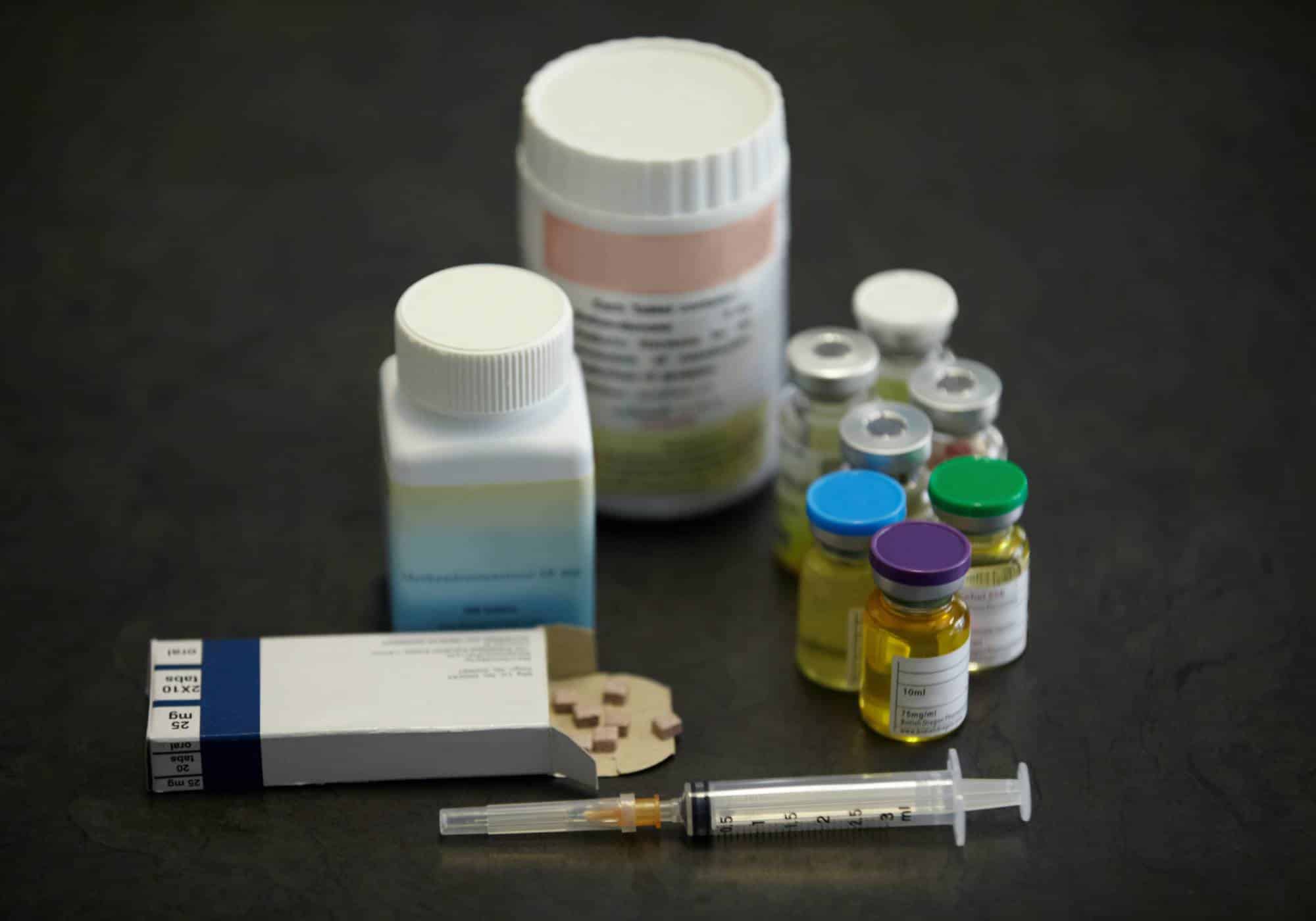Combining Adderall and alcohol to extend partying and increase alcohol consumption is risky and should be avoided. Adderall may conceal alcohol’s effects, leading to excessive drinking and heightened risk of alcohol poisoning. Furthermore, this combination can lead to serious heart complications. Such a mix poses severe risks, including life-threatening conditions like alcohol poisoning and cardiac arrest.
What is Adderall?
Adderall, a central nervous system stimulant comprising amphetamine and dextroamphetamine, is predominantly prescribed to manage attention deficit hyperactivity disorder (ADHD). It aims to enhance concentration and diminish impulsiveness by influencing the brain’s dopamine neurotransmitters. Additionally, Adderall is occasionally prescribed for narcolepsy.
Despite its therapeutic uses, Adderall must be prescribed and monitored with caution due to its potential for misuse and addiction. An extensive illegal market exists for Adderall, highlighting the risks of dependency and substance use disorder when it’s used without a medical need or proper supervision.
Can You Mix Adderall And Alcohol?
Combining Adderall and alcohol is extremely risky and not recommended. This dangerous mix can significantly heighten the likelihood of severe side effects, including cardiovascular issues like heart attacks, as well as alcohol poisoning. The interaction between Adderall, a CNS stimulant, and alcohol can lead to dire health consequences.
There are individuals who deliberately blend alcohol with Adderall, but this choice invariably results in more severe and hazardous outcomes. Such actions increase the risk of experiencing alcohol poisoning, a rise in heart rate, memory blackouts, among other negative effects.
It’s essential to understand that no level of alcohol consumption is considered safe when taking Adderall.
Why Do People Mix Adderall and Alcohol?
Individuals often combine Adderall and alcohol due to various misconceptions and a lack of awareness about the potential risks involved. Some believe that because Adderall is a prescription medication, it’s inherently safe—even when mixed with alcohol, a legal substance. There’s also a misunderstanding that the effects of one can counteract the adverse effects of the other.
Particularly among college students and young adults, there’s a noticeable link between the misuse of Adderall and alcohol consumption. The Substance Abuse and Mental Health Services Administration (SAMHSA) has estimated that 3.7% of full-time college students engage in nonmedical prescription drug use each month. A significant driver behind this trend is the belief that using prescription drugs nonmedically can aid academic performance, with nearly 29% of students in one survey either agreeing or strongly agreeing that such practices could help them achieve higher grades.
What Happens When You Drink On Adderall?
Consuming alcohol while on stimulant medications such as Adderall can lead to significant and hazardous effects on one’s health. The stimulating properties of Adderall may mask the intoxicating effects of alcohol, leading individuals to underestimate their consumption levels. This scenario can escalate the risk of alcohol or substance abuse, as one might not feel the immediate impact of alcohol yet its presence in the body and its potential health effects remain unchanged.
Dangers Of Mixing Alcohol And Adderall
Mixing Adderall and alcohol carries significant risks due to their opposing effects on the central nervous system; Adderall acts as a stimulant, while alcohol is a depressant. This dangerous combination can obscure the sensation of alcohol intoxication, leading individuals to consume dangerously high amounts of alcohol without feeling its full effects. Research indicates that this mixture not only heightens the likelihood of substance abuse issues but also increases the tendency to experiment with other drugs.
The adverse effects of combining these substances include:
- Severe vomiting
- Risk of stroke
- Heart irregularities
- Tremors
- Loss of consciousness
- Increased paranoia and anxiety
- Malnutrition
- Episodes of psychosis
Moreover, the use of Adderall can dull the feelings of both intoxication and the subsequent hangover, encouraging continuous and excessive drinking. This harmful cycle of using both substances can evolve into dependency, contradicting any initial academic motivations behind Adderall use and potentially leading to a downward spiral into addiction.
Risks of Mixing Adderall and Alcohol
Mixing Adderall with alcohol can elevate the likelihood of encountering numerous health complications, such as:
- Heart issues and potential heart failure.
- Respiratory problems, including bronchitis.
- Dehydration, overheating, and possible kidney failure.
- The danger of an overdose.
The energizing effect of Adderall may conceal the calming effects of alcohol, possibly causing individuals to drink more than is safe. This scenario raises the danger of alcohol poisoning and can diminish judgment, increasing the probability of accidents or reckless actions.
Moreover, consuming alcohol while on Adderall adds extra pressure on the liver, which must metabolize both substances, potentially harming liver health.
Mixing alcohol with Adderall or other substances can also heighten the risk of:
- Engaging in unsafe sexual activities.
- Sustaining injuries.
- Developing addiction disorders to alcohol, stimulants, or other substances.
- Experiencing severe mental or physical health issues.
- Engaging in more risky behaviors.
- Facing social and interpersonal challenges.
Additionally, individuals dealing with both ADHD and substance addiction may face:
- A higher suicide risk.
- Earlier addiction onset.
- More frequent hospital stays.
- Greater impulsiveness.
- A more complicated progression of their condition.
- A higher tendency towards using multiple substances.
- Reduced chances of maintaining sobriety.
- Lower adherence to treatment protocols.
Such individuals might also be more prone to concurrent conditions like depression, conduct disorder, bipolar disorders, anxiety disorders, and personality disorders.
Effects of Alcohol on ADHD
Alcohol’s impact on individuals with ADHD can be particularly problematic, as ADHD symptoms are closely tied to brain regions responsible for self-regulation, focus, judgment, and impulse control. These symptoms can include:
- Difficulties in maintaining concentration
- Acting on impulse
- A sense of restlessness
- A tendency to get easily distracted
ADHD is also associated with lower dopamine and norepinephrine levels in the brain, which are crucial for feeling pleasure and motivation and form an integral part of the brain’s reward mechanism, activated by positive experiences like achievements or personal milestones.
Individuals with ADHD might resort to alcohol or other substances as a coping mechanism, aiming to alleviate their symptoms. Initially, alcohol may seem to offer temporary relief by boosting dopamine levels, which can superficially mitigate ADHD symptoms. However, regular alcohol consumption eventually lowers dopamine levels further, exacerbating ADHD symptoms over time. Therefore, it’s particularly advisable for those with ADHD to abstain from alcohol, given its counterproductive effects on their condition.
How Long After Taking Adderall Can I Drink Alcohol?
If you’re prescribed Adderall, it’s advisable to abstain from alcohol consumption. Though some might suggest waiting at least six hours after taking Adderall before drinking, this is a rough estimate. It’s crucial to have open conversations with healthcare providers and loved ones about how Adderall affects you personally to avoid misuse and the risky side effects of combining it with alcohol.
Can You Overdose On Adderall And Alcohol?
Yes, the potential for an overdose on alcohol or Adderall overdose is significantly heightened when Adderall and alcohol are used together, creating a dangerous cocktail that puts the user at a greater risk. The combination of Adderall, a stimulant that can obscure the depressant effects of alcohol, can lead individuals to consume more alcohol than they can safely handle. This can precipitate a critical situation where the body is overwhelmed by the substances, increasing the likelihood of an overdose. It’s important for individuals to be aware of the severe risks associated with mixing these substances, as polysubstance use compounds the dangers and can lead to life-threatening outcomes.
Can Mixing Adderall And Alcohol Kill You?
Mixing Adderall with alcohol can be extremely hazardous, potentially leading to critical conditions such as heart attacks and alcohol poisoning.
This dangerous combination not only places immense strain on an individual’s health and cardiovascular system but also impairs judgment and decision-making abilities. This can result in high-risk behaviors, including driving while impaired or making other perilous choices.
Are Certain People More at Risk When Mixing Alcohol and Adderall?
Mixing alcohol and Adderall can be especially hazardous for some people due to their unique health conditions or histories. Individuals with pre-existing heart issues or liver complications may find themselves at a significantly increased risk when these substances are combined. Additionally, those with a past of substance misuse are particularly vulnerable, as the interaction between alcohol and Adderall can exacerbate the potential for adverse effects. This combination can lead to severe complications, making it crucial for anyone with these conditions or histories to exercise extreme caution and preferably avoid mixing these substances altogether.
Treatment For Alcohol And Adderall Addiction
Seeking professional help for Alcohol and Adderall addiction is essential, as combining these substances is unsafe and leads to harmful effects on mood, behavior, and cognition. If you’re dealing with addiction to both alcohol and Adderall, it might indicate a co-occurring disorder requiring specialized care.
Hope Harbor Wellness provides a thorough outpatient treatment program in Atlanta, GA tailored to individuals battling addiction to either Adderall, alcohol, or both. Our treatment options range from standard outpatient services to more intensive programs like Intensive Outpatient Program (IOP) and Partial Hospitalization Program (PHP), designed to fit the unique needs of each person.
Contact Hope Harbor Wellness at 678-929-6304 for more details and support as you start on the path to recovery. Our dedicated team is here to guide you towards a healthier, addiction-free life.












